 Petzlover
Petzlover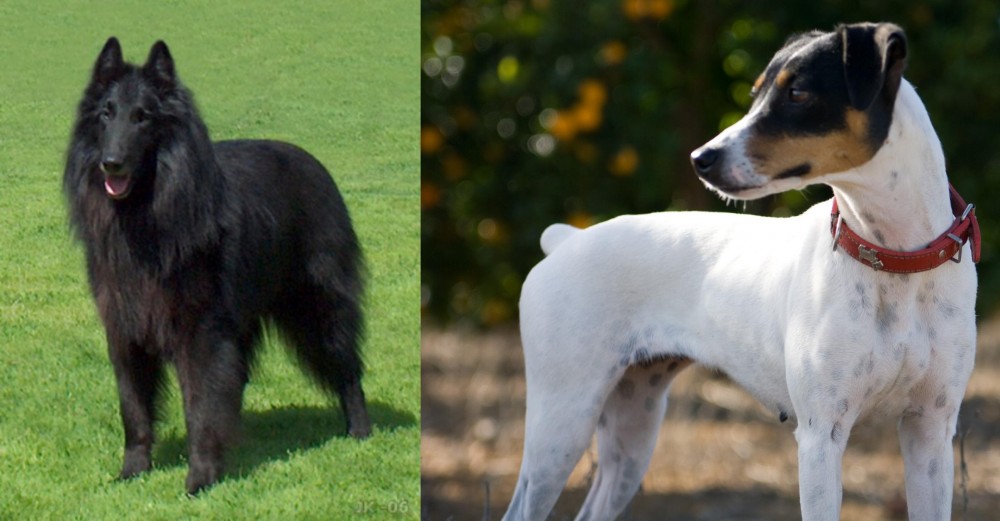 Belgian Shepherd Dog (Groenendael) is originated from Belgium but Ratonero Bodeguero Andaluz is originated from Spain. Belgian Shepherd Dog (Groenendael) may grow 23 cm / 10 inches higher than Ratonero Bodeguero Andaluz. Belgian Shepherd Dog (Groenendael) may weigh 21 kg / 47 pounds more than Ratonero Bodeguero Andaluz. Belgian Shepherd Dog (Groenendael) may live 4 years less than Ratonero Bodeguero Andaluz. Belgian Shepherd Dog (Groenendael) may have more litter size than Ratonero Bodeguero Andaluz. Belgian Shepherd Dog (Groenendael) requires High Maintenance. But Ratonero Bodeguero Andaluz requires Low Maintenance
Belgian Shepherd Dog (Groenendael) is originated from Belgium but Ratonero Bodeguero Andaluz is originated from Spain. Belgian Shepherd Dog (Groenendael) may grow 23 cm / 10 inches higher than Ratonero Bodeguero Andaluz. Belgian Shepherd Dog (Groenendael) may weigh 21 kg / 47 pounds more than Ratonero Bodeguero Andaluz. Belgian Shepherd Dog (Groenendael) may live 4 years less than Ratonero Bodeguero Andaluz. Belgian Shepherd Dog (Groenendael) may have more litter size than Ratonero Bodeguero Andaluz. Belgian Shepherd Dog (Groenendael) requires High Maintenance. But Ratonero Bodeguero Andaluz requires Low Maintenance
 Looking much like a pitch black German Shepherd dog, the Belgian Shepherd is a beautiful looking dog. Their roots go back to the 1800s to Groenendael, Belgium. This is where they were bred by a certain Nicolas Rose in 1910. The Groenendael is one of four different Belgian Sheepdog varieties but the Groenendael is sometimes treated as a distinct breed.
Looking much like a pitch black German Shepherd dog, the Belgian Shepherd is a beautiful looking dog. Their roots go back to the 1800s to Groenendael, Belgium. This is where they were bred by a certain Nicolas Rose in 1910. The Groenendael is one of four different Belgian Sheepdog varieties but the Groenendael is sometimes treated as a distinct breed.
They have always been used for their intelligence, serving for instance in the police force and being message carriers in war situations. Originally, Belgian Shepherds were used to herd livestock. It was in 1911 that the Groenendael was registered in the United States, and not much later the first Belgian Sheepdog Club of America formed. The breed was recognized by the American Kennel Club (AKC) in 1912.
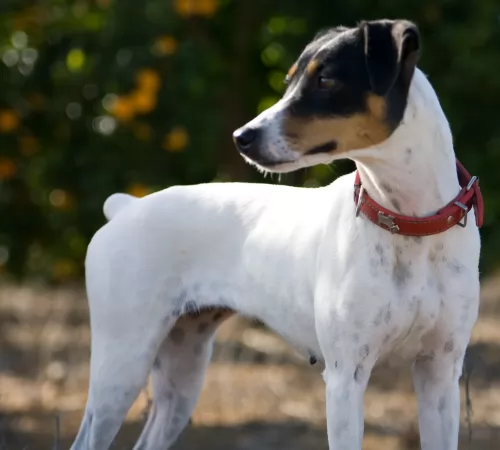 Long ago the English visited Spain to sample their wines, bringing with them smooth coated English Fox Terriers which were later crossed with other dog breeds of the area.
Long ago the English visited Spain to sample their wines, bringing with them smooth coated English Fox Terriers which were later crossed with other dog breeds of the area.
It is believed that the Andalusia Ratter’s ancestors were smooth coated fox terriers. The Club Nacional del Perro Andaluz Ratonero Bodeguero was established and in 1993 a standard for the breed was set.
It is only fairly recently that the breed was recognized by the Royal Canine Society of Spain but it isn’t recognized by any of the major kennel clubs.
 With his alert, bright brown eyes, the Groenendael, referred to often as the Belgian Sheepdog, has erect ears with a long, feathered tail. The straight, strong legs are also feathered. He is well proportioned, athletic and strong. He has a dense double coat, and this working dog’s coat is black, but you sometimes find some small white markings around his paws and muzzle. The size of the Groenendael is roughly 60-66cm at the withers with the females sometimes being slightly smaller. The weight of the dog is roughly 25–30 kilograms.
With his alert, bright brown eyes, the Groenendael, referred to often as the Belgian Sheepdog, has erect ears with a long, feathered tail. The straight, strong legs are also feathered. He is well proportioned, athletic and strong. He has a dense double coat, and this working dog’s coat is black, but you sometimes find some small white markings around his paws and muzzle. The size of the Groenendael is roughly 60-66cm at the withers with the females sometimes being slightly smaller. The weight of the dog is roughly 25–30 kilograms.
The Groenendael is an active, intelligent breed and training and socializing will be necessary to ensure he knows how to behave around his human family. He is a big, social dog and won’t do well when left alone day after day in the back yard. In fact he may even show signs of separation anxiety if you leave him indefinitely. He makes for an excellent family dog, just loving their companionship and he becomes very protective of them.
He is used to making use of his intelligence and therefore he will need mental stimulation as opposed to lying around all day. He gets on well with adults, children and other pets, but he needs to grow up with children and not be put among children when he is already an adult. He is loyal and loving to his human family, forming a deep bond, especially with just one member of the family.
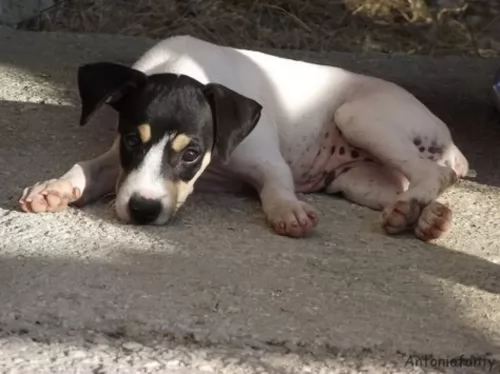 Also known as the Spanish Jack Russell, the Ratonero Bodeguero Andaluz looks very similar to this popular Jack Russell Terrier.
Also known as the Spanish Jack Russell, the Ratonero Bodeguero Andaluz looks very similar to this popular Jack Russell Terrier.
He is a small to medium sized dog with a lean, muscular body. The Ratonero developed in the south of Spain and is thought to be a mix of local ratting dogs and Fox Terriers. This ensured a quick, agile hunter.
The dog stands at between 35 – 43cm in height and weighs 6 - 9kg. The dog’s head is fairly small with dark brown eyes and half erect-half floppy ears. The coat is mainly white with some freckling. It is short and smooth with shades of black and tan covering the facial area. Some of these dogs are born with a natural bob-tail.
These dogs are known to have robust, hearty, happy personalities, full of the joys of living. They get on well with children as well as other pets if they have grown up with them.
Introductions should be slow if one of these dogs are brought into a home where there are already other pets. He is a very active breed and will be requiring plenty of mental stimulation and physical exercise.
They can provide quite a bit of entertainment for their human families as they can become quite clownish. They’re the kind of dogs that can adapt to life in the countryside or the city.
 Your Belgian Shepherd is an intelligent, active, loyal companion for you. He is highly intelligent too, and will need the right owner who can meet his energetic needs. He therefore wouldn’t do well with in a small place where the owners are couch potatoes. He is a working dog and will require being kept busy.
Your Belgian Shepherd is an intelligent, active, loyal companion for you. He is highly intelligent too, and will need the right owner who can meet his energetic needs. He therefore wouldn’t do well with in a small place where the owners are couch potatoes. He is a working dog and will require being kept busy.
Provide him with good food, look after that thick, lustrous coat of his, provide him with a warm, dry place to sleep and plenty of exercise, love and attention and he will turn out to be the wonderful pet that makes him such a popular breed.
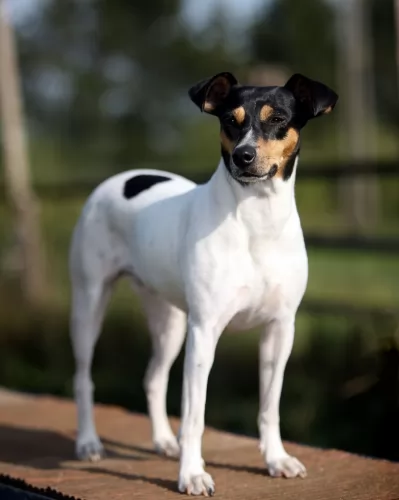 Your Ratonero Bodeguero Andaluz to this day is a ratter, always alert and ready to spring on prey. He is always lively and friendly, and with his loving nature, makes a splendid companion for his human family.
Your Ratonero Bodeguero Andaluz to this day is a ratter, always alert and ready to spring on prey. He is always lively and friendly, and with his loving nature, makes a splendid companion for his human family.
He is also a stubborn dog, liking to go his own way, and therefore will require training and socialization. He is an adaptable little dog too and when you bring him into your home he is willing to adapt to your way of life and become a loyal and loving member of your family.
 The Belgian Groenendael is a healthy, strong breed with no major health problems and with an average lifespan of 12-14 years.
The Belgian Groenendael is a healthy, strong breed with no major health problems and with an average lifespan of 12-14 years.
As with every dog breed, there will be some health issues to be aware of. Skin allergies, epilepsy, eye problems and hip- and joint dysplasia are some areas to look out for
Dental disease for instance, is a common problem with pets, and your Belgian Shepherd can have serious problems with their teeth. Tartar build-up on the teeth ca take you down a trail of infections and gum disease. If you don’t want to make use of a special canine toothbrush and toothpaste, your vet will do it for you.
Your Groenendael will also be susceptible to ticks, fleas and bacterial and viral infections. As a puppy of 6 – 8 weeks, vaccinations for parvo, rabies, and distemper will be necessary. You’ll also need to be generally watching your pet’s health and to get him to the vet when he shows signs of being run-down and ill.
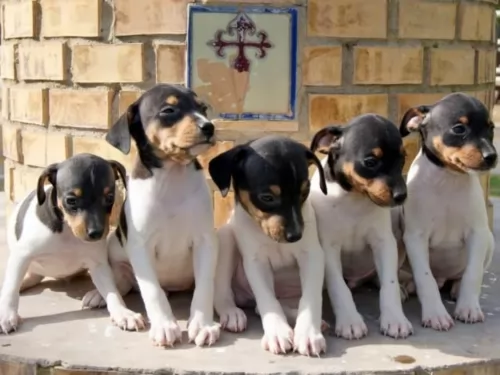 With good care, your Andalusian Ratter isn’t likely to get sick, but still, you would be better off knowing about some of the common dog diseases your pet could get.
With good care, your Andalusian Ratter isn’t likely to get sick, but still, you would be better off knowing about some of the common dog diseases your pet could get.
This is usually seen in young dogs where there is lameness in the hind legs and hip pain. It is believed that Legge Perthe’s occurs because of a genetic predisposition, and when it develops, there is sadly no cure.
Skin infections may seem fairly mild but nothing can be further from the truth. They can be painful and frustrating. Skin redness, dryness, itchiness and pain can cause your pet to lick and bite and make the situation worse. If your pet is being driven crazy by a skin irritation, get him to the vet who will do a complete physical examination.
Other diseases to be aware of include hip dysplasia, obesity, epilepsy and bloat.
 The Groenendael has a double coat and because it is also fairly long, his black coat may well be high maintenance and brushing every 2nd day will be necessary to keep the coat unmatted and to also get rid of those loose hairs. In fact, heavy shedding is part of this breed’s life and while heavy shedding happens twice a year, light shedding continues throughout the year. Sometimes is may be necessary to send him to a dog grooming parlour to snip his hair and to wash it.
The Groenendael has a double coat and because it is also fairly long, his black coat may well be high maintenance and brushing every 2nd day will be necessary to keep the coat unmatted and to also get rid of those loose hairs. In fact, heavy shedding is part of this breed’s life and while heavy shedding happens twice a year, light shedding continues throughout the year. Sometimes is may be necessary to send him to a dog grooming parlour to snip his hair and to wash it.
A healthy, quality diet it absolutely imperative. Speak to your vet about the best kind of wet- or dry food suited to an energetic breed like this and appropriate to his age. You need to include raw meat into your pets diet every day now and then to avoid skin problems. Always ensure a bowl of clean, cool water is available, The bowl will need to be washed out every other day.
make sure his ears are cleaned. Once again you have to be careful when prodding in a dog’s ear and your veterinarian will show you how.
keep him well exercised with long walks and ball games.
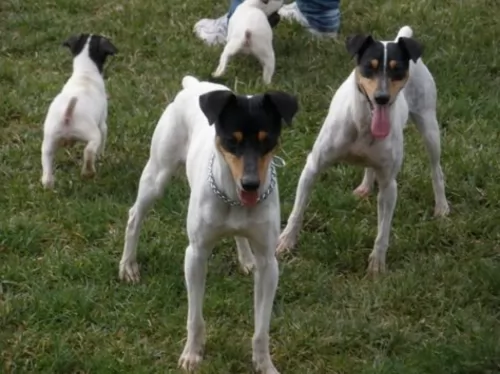 This is a fairly low maintenance dog as the short smooth coat will be easy to brush twice a week.
This is a fairly low maintenance dog as the short smooth coat will be easy to brush twice a week.
Check him over for unusual lumps, trim his nails and check inside his ears, look into his eyes to ensure they are bright and alert and look inside his mouth to make sure he doesn’t have any rotten teeth.
Have your pet neutered or spayed if you want to avoid puppies. This can be beneficial for your pet’s health too.
Feed your Ratonero Bodeguero Andaluz only the best food there is. If you opt for commercially manufactured food, make sure its full of vitamins and minerals. Your little pet will want consistency and simplicity with his food to avoid digestive problems.
Try and provide him with some home-made food which can be added to the dry kibble twice a week as a treat. Boiled chicken, brown rice or pasta and spinach, sweet potatoes and carrots all chopped up ad mixed into the dry kibble will ensure your pet’s health.
Some raw meat added in occasionally will also go towards ensuring his good health.
Always make sure he has access to fresh, cool water.
Provide him with a safe, dry, warm, comfortable place to sleep.
Get him to the vet when you see he is sick.
Ensure he has sun and shade in the garden.
Never ever leave him in a hot car.